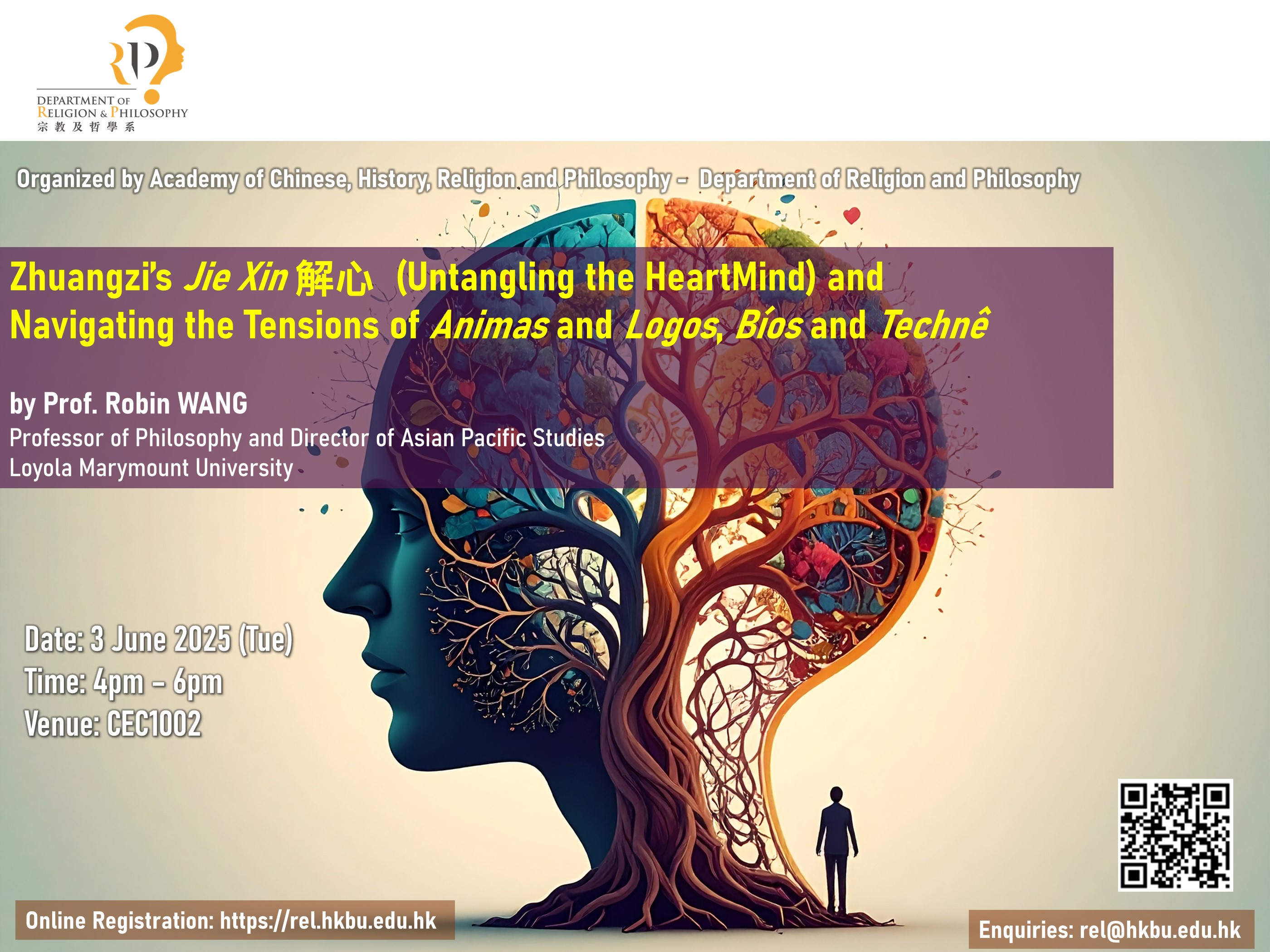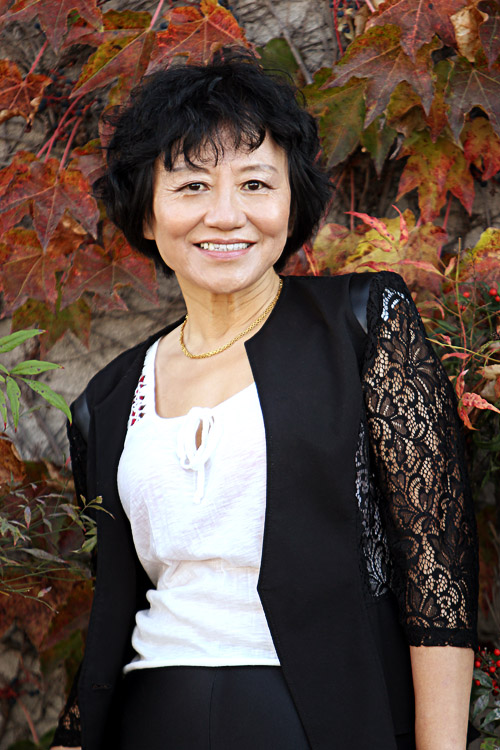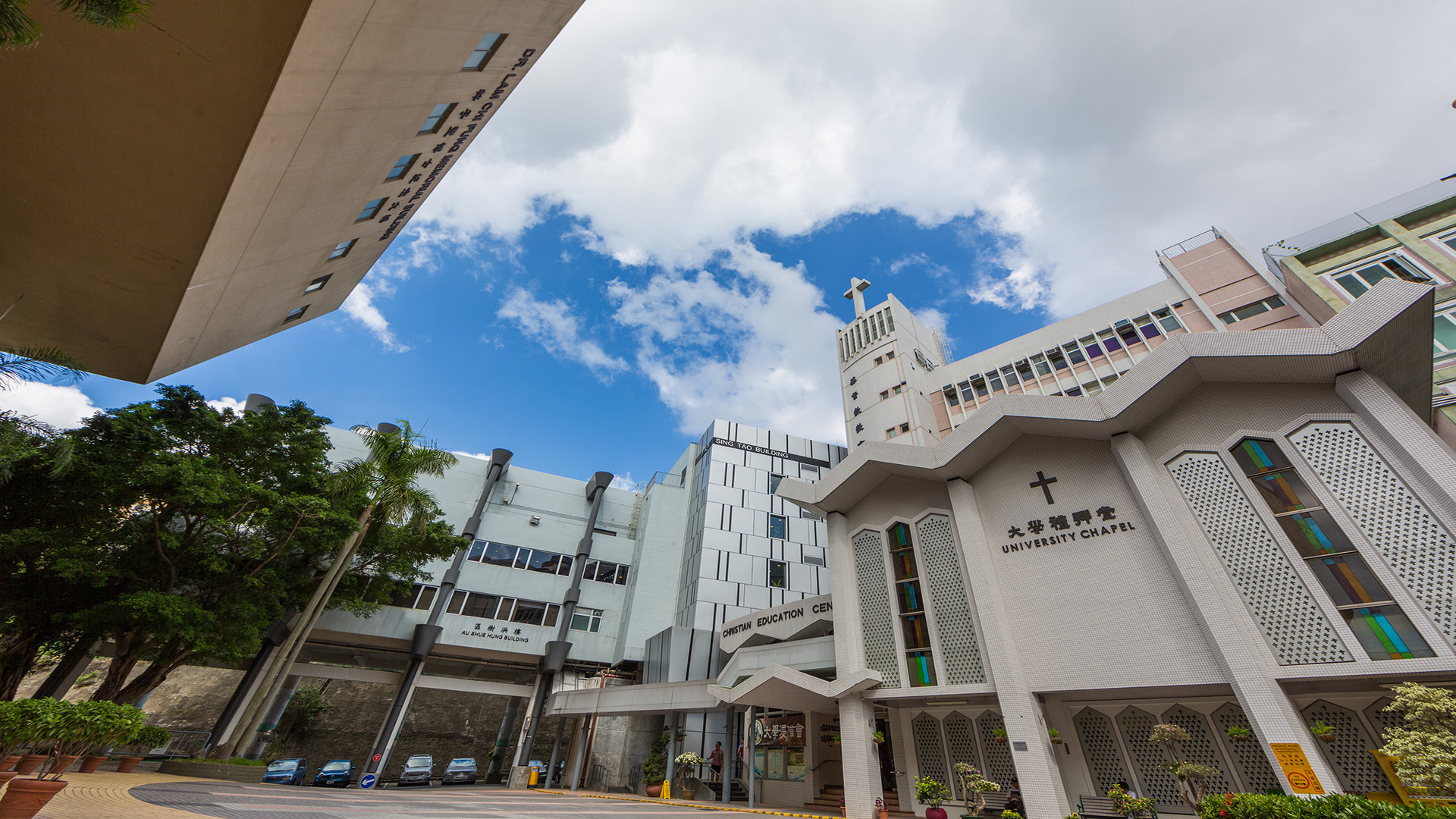3 June 2025 (Tue)
Zhuangzi’s Jie Xin 解心 (Untangling the HeartMind) and Navigating the Tensions of Animas and Logos, Bíos and Technê


| Date: | 3 June 2025 (Tue) |
| Time: | 4 - 6pm |
| Location: | CEC1002 |
| Speaker: | Prof. Robin WANG , Loyola Marymount University |
| Language: | English |
Zhuangzi1 employs the term 解 jie (untangling, dissecting, releasing, unraveling) in both 解⼼ (untangling the heartmind) and 解⽜ (dissecting the ox). In 解⼼, this 解 represents the process of "untangling" emotional and mental knots through a state of critique, releasing, and flow—similar to the precision and observation involved in dissecting the ox by understanding its natural structure. Why does Zhuangzi use jie 解 for both the ox and the heartmind? This essay will approach this question philosophically rather than as a mere lexical inquiry. It will further explore two interwoven philosophical problems: anima vs. logos and bíos vs. technê. Then essay will move to a final construction of miaoji 妙技 (subtle techne). It shows that the answer to my question lies in following the Dao. Cook Ding learns from his teacher the ox (bios), its natural grain, such human beings are given an opportunity to align with the natural flow of things by untangling the heartmind. The common thread is that transcending mere logos or techne and returning to animas and bios is to flow with the manifestation of the Dao. Jie is not merely an action but a philosophical state, horizon, or vision, pointing to the great unity of beings and life with clarity and wander, and preventing human creations, whether conceptual structures or artificial technology, to alienate us from Dao.


Prof. Robin WANG
Robin R. Wang is Professor of Philosophy at Loyola Marymount University, Los Angeles and The Berggruen fellow (2016-17) at The Center for Advanced Study in the Behavioral Sciences (CASBS), Stanford University. Her teaching and research focus on Chinese and Comparative Philosophy, particularly Daoist philosophy. She is the author of the acclaimed book, Yinyang: The Way of Heaven and Earth in Chinese Thought and Culture (Cambridge University Press, 2012) and the editor of Chinese Philosophy in an Era of Globalization, (SUNY Press, 2004) and Images of Women in Chinese Thought and Culture: Writings from the Pre-Qin Period to the Song Dynasty (Hackett, 2003). She is the member of the Steering Committee member for Fédération Internationale des Sociétés de Philosophie (International Federation of Philosophical Societies) where she actively engages in shaping the future of philosophical inquiry on a global stage.



